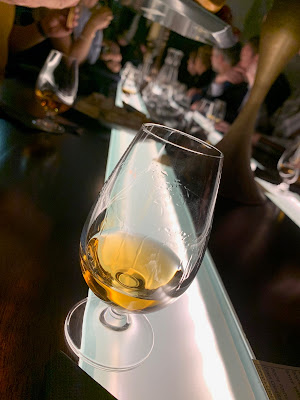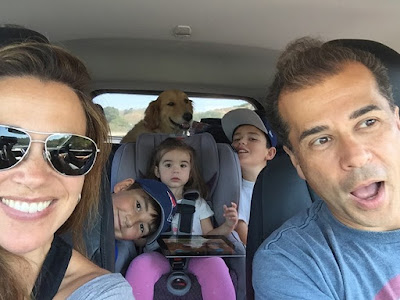Keep It Clean, Please: How Consumer Demand is Pushing New Sanitation Protocols Across the Travel Industry
New data this week from San Francisco-based Destination Analysts shows some positive signs for the travel industry.
The latest weekly survey of more than 1200 American travelers (published April 27) shows that personal concerns about contracting the coronavirus is at a six-week low. That said, 6.7 out of 10 still are worried about getting hit with COVID19. But the gradual drop-off may have something to do with the increasing awareness that -- in the new, post-pandemic "normal" -- travel companies will be prioritizing cleanliness and sanitation.
That, of course, is in response to consumers' own demands. Travelers post-COVID will expect things like hand sanitizers and disinfectant wipes readily available when they're out and about. They'll be receptive to things like body temp screenings and health questionnaires before they board a flight or check-in to a hotel. And -- and this is a big cue for the travel space -- they will want cleaning procedures to be showcased as clearly and as prominently as their AAA diamonds and spa amenities.
Click this Destination Analysts slide to enlarge:

Travel companies are responding. Major airlines, for one, have announced several new procedures. On May 1, American Airlines launched this video announcing the requirement that all flyers will be required to wear masks beginning May 11.
In April, United released a video that explains electrostatic spraying -- technology that allows sanitizing solvents to wrap themselves around all the nooks and crannies of the aircraft, from overhead bins and seats to air vents and trays. "I want to make sure that our customers and our employees feel safe on our airplanes," says United's Scott Hildebrand, which pretty much says it all.
Hotel chains like Marriott, Hyatt and Hilton have also rolled out cleaning initiatives to reassure consumers, along with social distancing measures for employees and guests. And Airbnb is launching procedures, too, including 24-hour waiting periods between guests to help ensure air-born particulates are gone.
Cleanliness -- and making sanitation protocols especially obvious to travelers -- will be key to the cruise industry's rebound, too, of course. MSC Cruises, for example, committed to "elevated deep-sanitation on every ship in the line's entire fleet" back in late January. Expect any upcoming cruise promotions and deals to be accompanied by overt highlights of cleaning practices before, during and after passengers sail.
One more interesting development -- Portugal's new "Clean & Safe" stamp, which tourism businesses can earn and display when they implement certain hygiene protocols. Hotels and restaurants are being encouraged to adopt sanitation and social distancing regimens -- even isolation practices for those who display certain symptoms -- to foster confidence among visitors. Portugal was about two years into a remarkable international tourism boom when COVID19 hit.
Other data from Destinations Analysts' latest report continue to bode well for staycations immediately post-COVID: 38% say they will take more road trips over air travel and 78% say they will avoid travel outside the U.S.
For more info, follow me on Twitter and be sure to visit my website -- gabethetravelguy.com. Cheers!
###
The latest weekly survey of more than 1200 American travelers (published April 27) shows that personal concerns about contracting the coronavirus is at a six-week low. That said, 6.7 out of 10 still are worried about getting hit with COVID19. But the gradual drop-off may have something to do with the increasing awareness that -- in the new, post-pandemic "normal" -- travel companies will be prioritizing cleanliness and sanitation.
That, of course, is in response to consumers' own demands. Travelers post-COVID will expect things like hand sanitizers and disinfectant wipes readily available when they're out and about. They'll be receptive to things like body temp screenings and health questionnaires before they board a flight or check-in to a hotel. And -- and this is a big cue for the travel space -- they will want cleaning procedures to be showcased as clearly and as prominently as their AAA diamonds and spa amenities.
Click this Destination Analysts slide to enlarge:

Travel companies are responding. Major airlines, for one, have announced several new procedures. On May 1, American Airlines launched this video announcing the requirement that all flyers will be required to wear masks beginning May 11.
In April, United released a video that explains electrostatic spraying -- technology that allows sanitizing solvents to wrap themselves around all the nooks and crannies of the aircraft, from overhead bins and seats to air vents and trays. "I want to make sure that our customers and our employees feel safe on our airplanes," says United's Scott Hildebrand, which pretty much says it all.
Hotel chains like Marriott, Hyatt and Hilton have also rolled out cleaning initiatives to reassure consumers, along with social distancing measures for employees and guests. And Airbnb is launching procedures, too, including 24-hour waiting periods between guests to help ensure air-born particulates are gone.
Cleanliness -- and making sanitation protocols especially obvious to travelers -- will be key to the cruise industry's rebound, too, of course. MSC Cruises, for example, committed to "elevated deep-sanitation on every ship in the line's entire fleet" back in late January. Expect any upcoming cruise promotions and deals to be accompanied by overt highlights of cleaning practices before, during and after passengers sail.
One more interesting development -- Portugal's new "Clean & Safe" stamp, which tourism businesses can earn and display when they implement certain hygiene protocols. Hotels and restaurants are being encouraged to adopt sanitation and social distancing regimens -- even isolation practices for those who display certain symptoms -- to foster confidence among visitors. Portugal was about two years into a remarkable international tourism boom when COVID19 hit.
Other data from Destinations Analysts' latest report continue to bode well for staycations immediately post-COVID: 38% say they will take more road trips over air travel and 78% say they will avoid travel outside the U.S.
For more info, follow me on Twitter and be sure to visit my website -- gabethetravelguy.com. Cheers!
###





Comments
Post a Comment